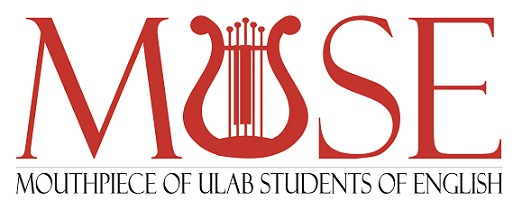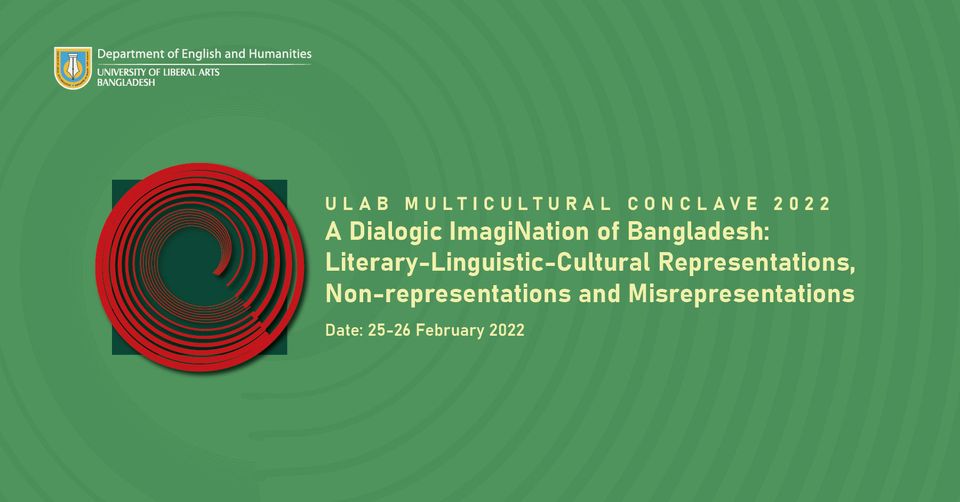ULAB Multicultural Conclave 2022: A Dialogic ImagiNation of Bangladesh: Literary-Linguistic-Cultural Representations, Non-representations and Misrepresentations
The Department of English and Humanities greeted the new year with the observation of the 70th anniversary of the Language Movement of 1952. The ULAB Multicultural Conclave, organized by the Department of English and Humanities, was a way to celebrate the beginning of the Bengali Language Movement, as well as to ask and encourage discourse about how Bangladesh as a nation is being imagined in works of literature.
The conclave was a 2-day event, beginning at 9am on the 25th of February and ending on the evening of the 26th. It had amassed 300 registered participants, from over 8 countries and 4 continents. The title of the conclave, “Dialogic Imagination”, was taken from the novel of the same name by Mikhail Bakhlin. “Dialogic” refers to the use of dialogue to generate conversation and discussions. The 2nd part of the conclave’s title alludes to Benedict Anderson’s “Imagined Communities”. Anderson himself depicts nation as a socially constructed community.
Professor Shamsad Mortuza, the Pro-Vice-Chancellor and the Dean of the School of Arts and Humanities, delivered his opening remarks to the audience. Professor Mortuza discussed the current conflicts brewing in the European nations. He remarked on how the media will tell stories, often shifting blame from one party to another, and how the current state of such nations was similar in nature to the environment created during the Language Movement of 1952. He stated the importance of revisiting the question of Language, to ponder what led martyrs during the days of the war to sacrifice themselves and get involved with the Movement. The conclave is held also to discuss the various representations, non-representations and misrepresentations of Bangladesh, and Bengali people in general, in popular media.
After Professor Mortuza’s uplifting opening remarked, Professor Syed Manzoorul Islam, a Keynote speaker and Professor of English and Humanities at ULAB, addressed the audience. Professor Islam acknowledged the current difficulties of the ongoing pandemic, about how it sometimes brought out the worst aspects of humanity out in broad daylight. He talked about the role of literature in acknowledging such matters. To quote, “Poetry can somehow attempt to readdress the imbalances created by ethnic cleansing, mass extermination of minorities and the killing of languages which are considered unimportant as the number of practitioners are very low.”

